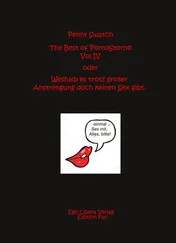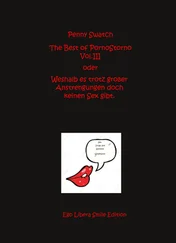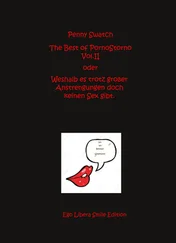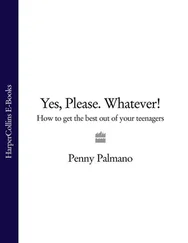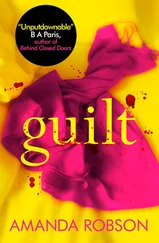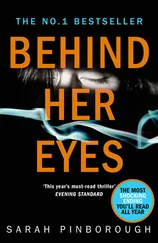Penny Vincenzi - The Best Of Times
Здесь есть возможность читать онлайн «Penny Vincenzi - The Best Of Times» весь текст электронной книги совершенно бесплатно (целиком полную версию без сокращений). В некоторых случаях можно слушать аудио, скачать через торрент в формате fb2 и присутствует краткое содержание. Жанр: Современная проза, на английском языке. Описание произведения, (предисловие) а так же отзывы посетителей доступны на портале библиотеки ЛибКат.
- Название:The Best Of Times
- Автор:
- Жанр:
- Год:неизвестен
- ISBN:нет данных
- Рейтинг книги:3 / 5. Голосов: 1
-
Избранное:Добавить в избранное
- Отзывы:
-
Ваша оценка:
- 60
- 1
- 2
- 3
- 4
- 5
The Best Of Times: краткое содержание, описание и аннотация
Предлагаем к чтению аннотацию, описание, краткое содержание или предисловие (зависит от того, что написал сам автор книги «The Best Of Times»). Если вы не нашли необходимую информацию о книге — напишите в комментариях, мы постараемся отыскать её.
The Best Of Times — читать онлайн бесплатно полную книгу (весь текст) целиком
Ниже представлен текст книги, разбитый по страницам. Система сохранения места последней прочитанной страницы, позволяет с удобством читать онлайн бесплатно книгу «The Best Of Times», без необходимости каждый раз заново искать на чём Вы остановились. Поставьте закладку, и сможете в любой момент перейти на страницу, на которой закончили чтение.
Интервал:
Закладка:
“You what?” She was shocked by that.
“I threatened her. I told her if the didn’t go along with my story that she was a work colleague, I’d tell the police about her drug habit. Not nice behaviour.”
“No. Not really. But…”
“But it was for you. I was so terrified of you finding out-not because you’d be angry, which you’d have every right to be, but because you’d be desperately hurt-that I bullied her. Harassed her ruthlessly. The irony is that if I’d been a bit nicer to her, she probably wouldn’t have turned up here that night. At my party. I was a complete shit. I am a complete shit. Oh, God…”
He looked at her, and she could see tears in his eyes. He brushed them away.
“But, Jonathan,” she said, “I can’t be what I’m not. I’m me. I can’t start being lazy or extravagant, or neglecting the children. Just so that you don’t have to live up to me, as you put it. It’s crazy; you’re talking rubbish. Self-indulgent rubbish.”
“It may be self-indulgent,” he said, “but it isn’t rubbish. Everyone’s so fucking envious of me. Or was. ‘Lucky chap,’ they used to say, ‘being married to Laura; wish my wife was more like Laura.’ God, Mark never stopped going on about it, and how Serena never let him get away with anything, how wonderful you were… You remember that song, that music hall song, ‘She’s Only a Bird in a Gilded Cage’? I felt like a bird in a gilded cage, and I flew out of it… just once, once for the hell of it. Or so I thought. Fate trapped me, shut the door behind me, and I’ll never be back in it now, and it serves me right.”
She said nothing, trying to make sense of what he was saying.
He stood up now, in front of her, staring down into her eyes. “I guess that’s it by way of explanation. I have never regretted anything more. I would give everything I have-everything except you and the children-to alter it. But I can’t. As I said to Charlie in the hospital, you have to live with what you’ve done. There’s no alternative. It’s hardly a justification, I know, but-”
“No,” she said, “it isn’t.”
“Well, that’s my swan song. I’ll go, Laura. Don’t worry. Or if you’d prefer it, I’ll stay here, for the sake of the children, carry on pretending. I’m not sure they could face losing me again. That’s not meant to be emotional blackmail; it’s a fact. But I won’t ask anything of you, anything at all. And when they’re older, maybe we can get divorced. It’s up to you. Whatever you want. It’s the least I can do for you. To make amends. I only ask one thing: that you try to believe how much I love you.”
“I’ll try,” she said after a very long time. “I really will try. And… don’t go, Jonathan. You’re right. The children couldn’t bear it.”
She wasn’t sure she would be able to bear it herself. But she really wasn’t ready to say that.
CHAPTER 51
Michael Andrews always said the most important quality a coroner should possess was courtesy. And indeed, he had never come across one who didn’t. It was important for all concerned: for the relatives of the deceased, of course, still grieving, often disappointed that there was to be no criminal trial, so that they might find retribution for the death of their loved ones, and at least anxious to establish the truth; for the police who had worked so hard to establish that truth and whose evidence, often rather ponderous, must be heard in full, that the hard work might be justified; for the witnesses, often distressed themselves, always nervous; and of course for the coroner’s office staff, so at pains to be courteous themselves, to put people at ease, to ensure that proceedings ran smoothly and as swiftly as possible.
The inquest he was to conduct the following week, on the people who had died in the M4 crash the previous August, would be long, possibly running over two days. There were three deceased, and many witnesses; the crash had been complex and high-profile. It would test his skills considerably, and he would need to prepare for it with great care.
Since it was to be so large, and with so many attendees, it was to be held in the council chambers at the county court, rather than in one of the committee rooms; in a way people preferred that; they felt the deaths of the loved ones was being considered a matter of some importance, accorded proper dignity. The other thing about inquests, of course, was that they differed from criminal enquiries in that all the witnesses heard all the evidence. It gave a sense of greater openness and fairness, and it meant those involved could more easily see any concerns laid properly to rest.
There would be lawyers present, of course, because of insurance issues, and several doctors. One of the doctors, Dr. Jonathan Gilliatt, would be giving evidence on two counts: his own involvement in the crash, and his professional observations of the injured and deceased.
It would be wrong, Michael Andrews supposed, to say he was looking forward to the inquest-it would be both gruelling and sad-but it did promise to be what he privately called a yardstick, one by which he would judge and compare others.
His wife, Susan, was prepared for a somewhat solitary weekend.
“All rise.”
Michael Andrews liked this moment, as he walked into the court: not from any delusions of grandeur, but because it was an acknowledgement of his authority and through him the court’s.
He sat in the council chamber on a high dais, flanked by his clerk and coroner’s officer. The public sat before him, the seats ranged amphitheatre style, and banking up towards the back of the chamber; the witness table-also slightly raised and complete with microphone and Bible-was to his left.
He began as he always did: by welcoming everyone, by explaining the purpose of the inquest. “We are here to answer four questions: who the deceased were, and when, where, and how they came to their deaths. It is not to establish any blame, and no charges will be brought as a result.” He paused. “Three of the four answers are straightforward. The fourth, establishing by what means death arose, is the main purpose of this inquest. The families, if they wish, may ask relevant questions.”
The families, sitting together in their prescribed area, all looked at one another and then nervously about them. He knew from experience that it was likely at least one of them would ask questions, probably of the pathologist. He also knew what the first question, at least, was likely to be: would the victim have suffered at all?
He named the deceased and described them briefly: their ages, their status, where they lived-the young girl, Sarah Tomkins, the minibus driver, Edward Barnes, the young mother, Jennifer Marks.
He called the pathologist, Dr. Paul Jackson from St. Marks Hospital, who had carried out the postmortems on the deceased and asked him to take the oath. People were very respectful of the oath; they spoke it clearly and audibly, even if they became less so as they gave their evidence. And it reassured the relatives further, he knew: that no one was going to lie, to prevaricate; they were going to hear, finally, exactly what had happened to cause the deaths of those they loved.
Dr. Jackson gave his evidence: the awful bald facts, the exact cause in each case of the deaths. The mother of the young girl began to cry; the husband blew his nose hard and repeatedly. Andrews asked if there were any questions: the wife of the minibus driver, a middle-aged woman, her face pale and etched with strain, said, “I would like to ask a question. In your opinion, Doctor,” she said, speaking to the pathologist, “would my husband have suffered at all?”
“I think I can state quite categorically,” Dr. Jackson said, “that he would not. It is my professional opinion that all three would have died instantly.”
Читать дальшеИнтервал:
Закладка:
Похожие книги на «The Best Of Times»
Представляем Вашему вниманию похожие книги на «The Best Of Times» списком для выбора. Мы отобрали схожую по названию и смыслу литературу в надежде предоставить читателям больше вариантов отыскать новые, интересные, ещё непрочитанные произведения.
Обсуждение, отзывы о книге «The Best Of Times» и просто собственные мнения читателей. Оставьте ваши комментарии, напишите, что Вы думаете о произведении, его смысле или главных героях. Укажите что конкретно понравилось, а что нет, и почему Вы так считаете.



